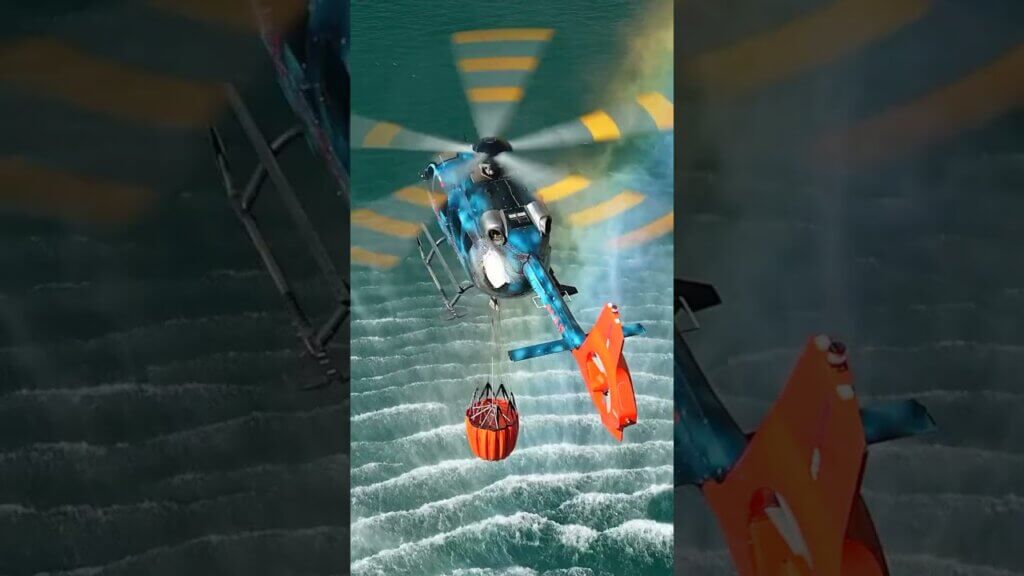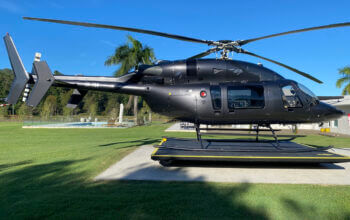After two years in stealth mode, United Therapeutics subsidiary Unither Bioelectronics has revealed dramatic evidence of its progress, completing the world’s first drone delivery of donor lungs for transplant on its way to realizing a far more ambitious vision for aerial organ transport.
The proof-of-concept flight in September 2021 used a small multicopter drone to transfer donor lungs from Toronto Western Hospital to Toronto General Hospital — symbolic as the site of the world’s first single and double lung transplants. For the flight, which lasted a few minutes, the lungs were packaged in a box specially designed to maintain their temperature and protect them from the elements and vibration.
According to Unither, “the flight demonstrated that a life-saving organ can be safely and quickly flown via drone over a high-density urban setting and highly congested traffic area, maintaining the right conditions for the organ, while successfully interfacing and coordinating with a medical transplant team, in this case, Toronto General Hospital’s world-renowned lung transplant team led by Dr. Shaf Keshavjee.”
As such, the company said, it has “established an important stepping stone for future organ delivery” that will ultimately open the door for widespread adoption of larger, longer-range, autonomous eVTOL aircraft.

Based in Bromont, Quebec, Unither Bioelectronics is led by United Therapeutics CEO Martine Rothblatt along with Mikaël Cardinal, VP of program management for Organ Delivery Systems. Rothblatt is passionate about expanding access to life-saving organ transplants, and United Therapeutics operates ex-vivo lung perfusion centers in Silver Springs, Maryland, and Jacksonville, Florida, which restore damaged donor lungs that would otherwise be unsuitable for transplant.
The company is also pursuing groundbreaking research in xenotransplantation and advanced 3D bio-printing, with the goal of someday ensuring an “unlimited supply of manufactured transplantable organs.”
An accomplished pilot who is likewise passionate about protecting the environment, Rothblatt has funded multiple eVTOL projects with the goal of establishing a fleet of zero-emissions aircraft to transport large numbers of manufactured organs. These include Tier 1 Engineering’s Electric R44 and Beta Technologies’ Alia, both of which Rothblatt has flown herself.
United Therapeutics also has a deal with EHang to develop a Manufactured Organ Transport e-Helicopter System, or MOTH — initially with EHang’s electric multicopters, and eventually with its longer-range winged eVTOL aircraft. Unither Bioelectronics began operations of the EHang EH216 in August last year under a special flight operations certificate from Transport Canada, and this week released a video showing how it expects the vehicle to be used for future organ transports at United Therapeutics’ facilities.
In the video, a technician approaches an EH216 with a packaged organ and is instructed by an automated voice emanating from the aircraft to load and lock down the organ and return the aircraft’s charging cable to its cradle. The technician then climbs into the front of the aircraft and confirms her destination as NYU Langone Health in New York City. The aircraft obtains an automated flight plan and clearance from air traffic control and runs through the necessary pre-departure checklists, while the technician relaxes to music from Sirius XM — a nod to Rothblatt’s role in founding Sirius satellite radio.
In this vision of the future, the aircraft is optionally piloted, but the pilot controls have been de-activated for this automated flight. “You may pretend to fly with them,” the aircraft informs the technician, “but they are not coupled to any flight controls.”
Unither Bioelectronics said it is currently working on innovations to solve for scalability, transportation logistics, and environmental benefits, among other considerations. By the end of this decade, the company hopes to see eVTOL aircraft delivering thousands of organs to transplant hospitals across North America.
“Simply put,” the company said, “drones may help organs for transplants get to the people who need them, quicker and in a more cost-effective way.”








